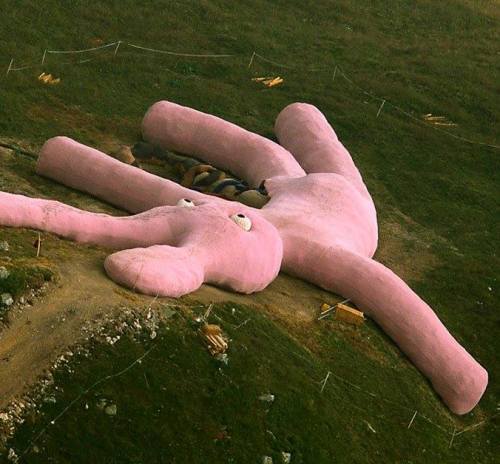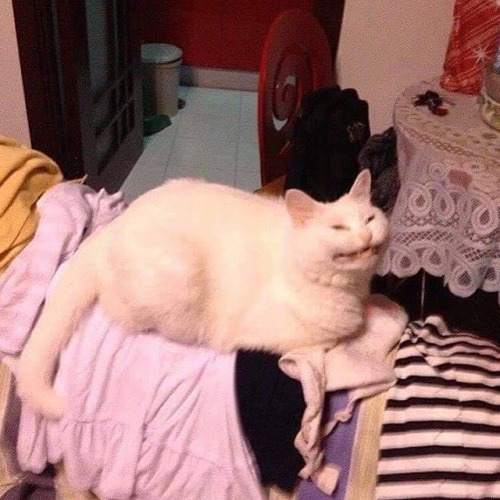Linruuu - Linru ฅ^•ﻌ•^ฅ





More Posts from Linruuu and Others

Mark Oliver Everett, Things the Grandchildren Should Know
There were a lot of freshwater mussels on the 2021 US extinction list. They didn’t leave us with haunting recordings of them calling out for a mate they’d never meet, there were no drawings in vivid color. They were extremely important nevertheless and their loss is frustrating too. That’s why stream ecology and mollusks have always fascinated me. They were silent, stalwart little heroes and entire species were lost to pollution.
w. wait. hold on a second. are. sharks whales????????
Nope! Sharks and whales are VEEERY different. They haven’t shared an ancestor since... well.... since the devonian, I suppose. That was over 450 million years ago!
See, it’s...

Oh, bother. Alright, fine, I’ll do an infographic. It’ll be easier to explain, because there’s a lot of stuff to digest.
Let’s go back in time to.... THE CAMBRIAN!!




Disclaimer: I made this in like an hour while slapping together what I knew about these two animals and decorating it with cute images. It isn’t totally accurate, and I’m simplifying a lot for ease of reading. Please don’t eat me, I’m not a bio major!
Transcript below the cut!
[Transcript start: The image is a simple-looking infographic with a green background and chalk-like white lined drawings of various fish.
The Cambrian Explosion, which took place about 541 million years ago, featured a whole bunch of neat stuff crawling around. This included things like:
Opabinia - a shrimp-like organism with lots of side-fins and a tuby-like appendage which it used to scoop things into its mouth
Trilobites - the ancestor of arthropods, which we consider ‘bugs’ these days.
Dickinsonia - an organism which looks a lot like a leaf, with a middle section and ray-like parts coming out of it and forming most of its body.
Andsome of the first fishes - the jawless fish, who were our earliest ancestors. The jawless fish resemble lamprey eels - things which don’t have a moving jaw bone.
During the Devonian period (approximately 490 million years ago), the fish line evolved jaws, which was great for them, because they could now smile winningly. (And eat stuff better.) This was the last common ancestor shared between sharks and whales.
The jawed fish evolved into two groups - one was the cartilaginous fish (or fish which have no bones, only cartilage, except for their teeth) - and the other was bony fish, which had a skeleton. These body fish were technically whale ancestors - because the group eventually evolved the species which first came up on land. These were creatures similar to lungfish, who were able to process oxygen out of water and could move themselves through mud using their flippers.
Meanwhile, the shark ancestors continued their lineage in the oceans and evolved into many more funky shapes, including rays (like stingrays) and skates.
As for the fish on land - they were the ancestors to what we know today as the tetrapods - the things which eventually became the amphibians, lizards, dinosaurs... and mammals!
One of these mammals was the whale ancestor, which looked quite similar to what we think of as a regular land animal - it had four limbs, and a body plan not dissimilar to dogs, cats, etc. Although it could walk on land, it decided to make an evolutionary U-turn and go back into the water again.
They evolved to be optimized for swimming, and eventually lost their hind limbs. They still needed to breathe air, though, and they are still considered mammals, because they birth and nurse their young!
This begs the question: If sharks and whales aren’t related to each other that much, why do they look so similar?
That’s a great question! That’s because of something we call Convergent Evolution.
It turns out some shapes just work really well when you’re trying to swim in water. Having fins, flippers, and being fish-shaped just gives you advantage, so many water dwelling creatures end up evolving similar bodyplans - like whales and sharks did.
There’s still a reliable way to tell the two apart, though. Check their tails! See if you can tell the difference.]
it's easy to miss the way night smells, somehow wet and earthy and yet so graceful. it's easy to miss the pale light of the moon, white and feeble and elegant as it sweeps through the streets. it's easy to miss the sound of stars, low and distant and familiar like a much awaited embrace.
it's easy to forget night's beauty, but if you strain your ear just so, or manage to squint your eyes enough, or simply allow yourself to find the differences in the air after the sun has set, that beauty will be yours to cherish and behold.
don't forget to look for joy in this world.
crunch crunch munch munch

Cat mute for euphonium.
Video/caption/photo by Kazuhiro Tsukimura



In 2005, a group of artists in Italy built a giant 200-foot-long plushie rabbit in the countryside, and just left it there. It’s been there ever since.
(Source)

Xray: shows bone/skull only. Does not show the brain. Best used to detect if there are bone fractures. CT: quick test. Shows brain but detail not great. Shows if any larger bleed, stroke, lesions, or masses. MRI: long test. Shows brain and detail is great. Shows smaller bleeds, stroke, lesions, or masses. MRA: shows the flow of blood in the vasculature system of the brain. If there is vessel narrowing or blockage this test would show it. PET scan: shows how active different parts of the brain is. An active brain uses sugar as energy and pet scan detects how much sugar is being used by lighting up and turning different colors. The more sugar being used the more that area will light up and be different in colors. Cancer cells use the most sugar so cancer cells light up the most. PET scan is used to see if there are cancer cells. (Cancer cells replicate at a very fast and uncontrolled rate hence use a lot of sugar to allow that replication hence why they light up so much).
Via Meddy Bear










the holy grail
-
 shadoram liked this · 1 year ago
shadoram liked this · 1 year ago -
 slickkjames reblogged this · 1 year ago
slickkjames reblogged this · 1 year ago -
 xphandelionx liked this · 1 year ago
xphandelionx liked this · 1 year ago -
 love-of-the-interesting-and-cool reblogged this · 1 year ago
love-of-the-interesting-and-cool reblogged this · 1 year ago -
 talkingg2themoon liked this · 1 year ago
talkingg2themoon liked this · 1 year ago -
 angel-stiles17 liked this · 1 year ago
angel-stiles17 liked this · 1 year ago -
 buduskasss reblogged this · 1 year ago
buduskasss reblogged this · 1 year ago -
 paragonofmisgivings reblogged this · 1 year ago
paragonofmisgivings reblogged this · 1 year ago -
 paragonofmisgivings liked this · 1 year ago
paragonofmisgivings liked this · 1 year ago -
 barisaxifangirl liked this · 1 year ago
barisaxifangirl liked this · 1 year ago -
 closetedgoddess reblogged this · 1 year ago
closetedgoddess reblogged this · 1 year ago -
 closetedgoddess liked this · 1 year ago
closetedgoddess liked this · 1 year ago -
 mylensonlife liked this · 1 year ago
mylensonlife liked this · 1 year ago -
 lilimaraf liked this · 1 year ago
lilimaraf liked this · 1 year ago -
 cognac-lilac-fumes liked this · 1 year ago
cognac-lilac-fumes liked this · 1 year ago -
 lettab liked this · 1 year ago
lettab liked this · 1 year ago -
 trueblu liked this · 1 year ago
trueblu liked this · 1 year ago -
 ayellepea liked this · 1 year ago
ayellepea liked this · 1 year ago -
 theviolagoddess liked this · 1 year ago
theviolagoddess liked this · 1 year ago -
 abeautifulmindexposed reblogged this · 1 year ago
abeautifulmindexposed reblogged this · 1 year ago -
 abeautifulmindexposed liked this · 1 year ago
abeautifulmindexposed liked this · 1 year ago -
 rainnchaos liked this · 1 year ago
rainnchaos liked this · 1 year ago -
 rabine243 liked this · 1 year ago
rabine243 liked this · 1 year ago -
 iamjumblejim reblogged this · 1 year ago
iamjumblejim reblogged this · 1 year ago -
 iamjumblejim liked this · 1 year ago
iamjumblejim liked this · 1 year ago -
 whatacroseries liked this · 1 year ago
whatacroseries liked this · 1 year ago -
 darklycola liked this · 1 year ago
darklycola liked this · 1 year ago -
 betagirl122xsinematic liked this · 1 year ago
betagirl122xsinematic liked this · 1 year ago -
 maemaemyes liked this · 1 year ago
maemaemyes liked this · 1 year ago -
 irhlove liked this · 1 year ago
irhlove liked this · 1 year ago -
 linnytree liked this · 1 year ago
linnytree liked this · 1 year ago -
 subtomyheart liked this · 1 year ago
subtomyheart liked this · 1 year ago -
 hydralisk98 liked this · 1 year ago
hydralisk98 liked this · 1 year ago -
 curvy8playful-blog liked this · 1 year ago
curvy8playful-blog liked this · 1 year ago -
 xmen30086 liked this · 1 year ago
xmen30086 liked this · 1 year ago -
 psycho-on-holiday liked this · 1 year ago
psycho-on-holiday liked this · 1 year ago -
 adnarimel reblogged this · 1 year ago
adnarimel reblogged this · 1 year ago -
 dcmavellover liked this · 1 year ago
dcmavellover liked this · 1 year ago -
 spookylair liked this · 1 year ago
spookylair liked this · 1 year ago -
 pink-2995 liked this · 1 year ago
pink-2995 liked this · 1 year ago -
 feycreature reblogged this · 1 year ago
feycreature reblogged this · 1 year ago -
 feycreature liked this · 1 year ago
feycreature liked this · 1 year ago -
 vintagebaguettes liked this · 1 year ago
vintagebaguettes liked this · 1 year ago -
 coolandnevercollected liked this · 1 year ago
coolandnevercollected liked this · 1 year ago -
 coffeeartificer liked this · 1 year ago
coffeeartificer liked this · 1 year ago -
 nontotoyo liked this · 1 year ago
nontotoyo liked this · 1 year ago
